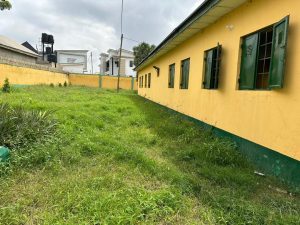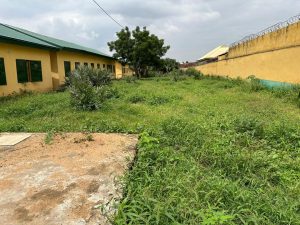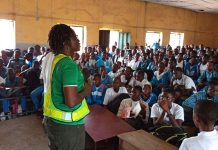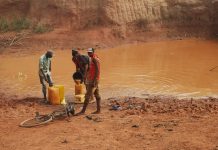By ibrahima yakubu
A non-governmental organization based in Kaduna State , the Society for Water and Sanitation in Nigeria (NEWSAN), has concluded a one-day fact-finding mission across several boarding schools to investigate a recent diarrhea outbreak that has affected a large number of students.
Led by Pastor Peter Kuzasuwat Ishaya, the investigation team visited Government Girls Secondary School (GGSS) Kawo and Queen Amina College in Karuri, Kaduna.

The primary objective of the visit was to identify the root causes of the outbreak and to recommend urgent and sustainable preventive measures.
The assessment, conducted on Wednesday, included key stakeholders from the Ministry of Health, as well as science and environmental journalists. The team inspected school facilities with the aim of finding long-term solutions to the recurring health issues.
This is not the first time GGSS Kawo has experienced disease outbreaks, often attributed to poor maintenance of school facilities and unsafe water sources.
During the visit, the team conducted thorough inspections of sanitation infrastructure, including toilets, boreholes, school kitchens, drainage systems, and other hygiene-related areas.

Preliminary findings pointed to poor sanitation, inadequate hygiene practices, and a general lack of maintenance. Students were observed transporting uncovered food from the school kitchen to their hostels—raising further health concerns.
To address these issues, the team recommended the establishment of Environmental Clubs in all schools. These clubs would educate students on personal hygiene and promote practices to protect school environments from the spread of waterborne and airborne diseases.
Additionally, the team emphasized the urgent need for more healthcare personnel in schools to monitor and manage students’ health. They also advocated for the recruitment of more matrons and caregivers, especially in hostels, to ensure better supervision and welfare of students.
The NGO further recommended the provision of tools for cutting grass and cleaning school premises, especially during the rainy season, to prevent the hiding of rodents and insects that could pose health risks.
They also suggested that borehole water should be taken to certified laboratories for routine medical testing to ensure its safety for consumption.
GGSS Kawo currently accommodates over 2,000 female students, while Queen Amina College houses more than 3,000 girls—underscoring the urgent need to strengthen sanitation and health systems in such densely populated schools.
It is worth noting that GGSS Kawo recently suffered a diarrhea outbreak, making these interventions even more critical for safeguarding students’ health and preventing future incidents.

In a related development, the Kaduna State Government has confirmed that all 15 students hospitalized due to the outbreak at GGSS Kawo have fully recovered and returned to school. This was disclosed by the State Commissioner for Health, Umma Kaltum-Ahmed, during an interview with the News Agency of Nigeria (NAN) on Monday in Kaduna.




















